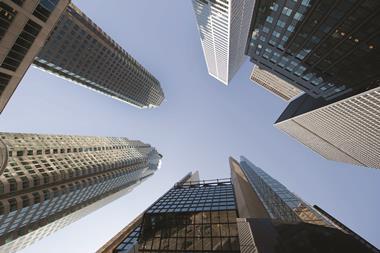UNITED STATES – Optimism among the US real estate investment community has risen considerably over the past two years, despite concerns around interest rates, according to the 2014 Emerging Trends in Real Estate report from PwC and the Urban Land Institute (ULI).
The report, which surveyed more than 1000 real estate professionals, found that 67.9% believed prospects for profitability were good to excellent, compared with 55.9% last year and 17.7% in the 2010 survey.
"The movement from last year to this year is very strong," said Mitch Roschelle, partner and US Real Estate Advisory Practice Leader at PwC.
Roschelle noted that the survey took place between July and September, a time when speculation over the phasing out of quantitative easing and the potential for rising interest rates were unsettling the markets.
Despite that, respondents were still more optimistic than they were a year ago. "The most surprising thing about this year’s survey is that market participants are somewhat neutral to interest rates going up," he said.
The report has forecast a modest increase in interest rates in the short term, but the authors found a widespread belief "that the market can handle an orderly increase in interest rates without serious disruption to the recovery".
The report also revealed the strength of the US housing market, critical for full economic and real estate recovery. Respondents were very positive about both investment and development prospects in residential property types, including multi-family and single-family.
Investors were most positive about in-fill and in-town housing, but they also anticipated good prospects for senior housing as well as single-family moderate-income homes.
Another trend picked up by the report is the continued influx of foreign capital into the US real estate market, and one that is secular and not cyclical according to Roschelle.
Miami, which is already benefiting from strong foreign investment, rose to eighth in the ranking of cities, up from 12th place last year.
Roschelle said the largest investors in US real estate were also the biggest trading partners: oil-rich nations and China. "What is interesting is the time horizon of these investors,” he said, pointing out that they tend to be long-term investors.
Both domestic and foreign sources of capital are looking beyond the gateway markets, as core opportunities in major markets become more expensive. This year, San Francisco remained the top-ranked market, favoured for its strong job growth, while nearby San Jose held on to third place. Both cities benefit from strength in the tech sector.
Houston rose to second place, up from fifth, knocking New York City down to fourth place. Dallas/Fort Worth rose to fifth place, up from ninth place last year, rated high for investment and development and especially for its homebuilding prospects.
Washington DC, traditionally highly ranked by respondents (it was in first place as recently as 2011) fell to 21st place in the 2014 survey, down from ninth place in 2013.











